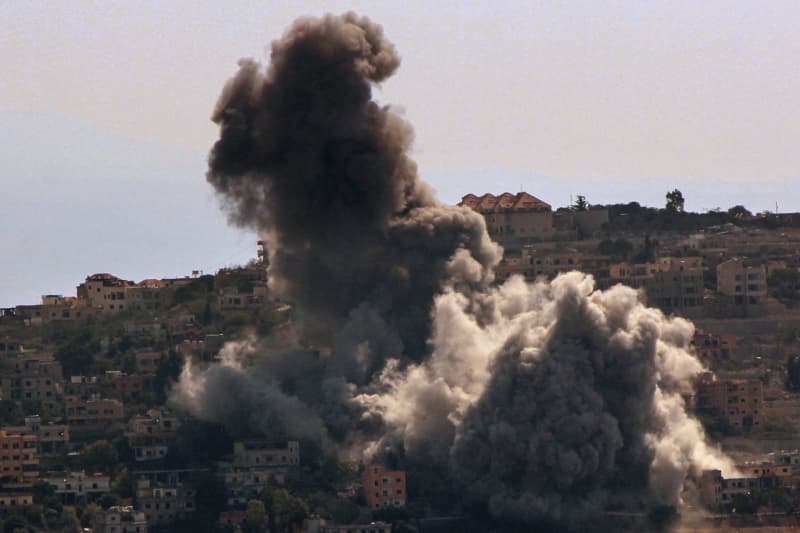The recent escalation of violence in southern Lebanon has led to multiple attacks on the United Nations Interim Force in Lebanon (UNIFIL), culminating in repeated explosions at their Naqoura headquarters. On Friday, explosions near an observation post in Naqoura resulted in injuries to two peacekeepers, marking the second attack within 48 hours, with prior injuries occurring due to Israeli tank fire targeting a UNIFIL watchtower. While the UN mission did not establish the cause of the explosions, it emphasized that such incidents represent a severe breach of international humanitarian law and UN Resolution 1701. This resolution, passed in 2006 after a month-long conflict between Israel and Hezbollah, aims to curtail hostilities between the two parties.
The situation on the ground has deteriorated further with reports of structural damage to a UN post near Labbouneh, attributed to Israeli military action using a bulldozer and tank maneuvers. In response to these developments, several nations, including Germany and France, have condemned the attacks on UN peacekeepers. The mandate of UNIFIL, which comprises over 10,000 troops from more than 50 countries, is to oversee security arrangements in the contentious border region between Lebanon and Israel, which has been fraught with tension and violence as Hezbollah retaliates to the ongoing conflict in Gaza by launching missiles into Israel.
The Israeli military has acknowledged that their forces fired upon UNIFIL headquarters but claimed they were responding to the presence of Hezbollah near UN positions. The group has voiced solidarity with Hamas, the Palestinian Islamist entity entrenched in the Gaza conflict, reflecting a broader regional upheaval. As the Israeli military escalates its campaign against Hezbollah, including ground offensives and substantial airstrikes, civilian casualties have surged, with strikes reportedly claiming the lives of nearly two dozen people in central Beirut alone.
In light of the escalating violence, the Lebanese caretaker Prime Minister, Najib Mikati, has called upon the United Nations to expedite the adoption of a resolution declaring an immediate ceasefire between Israel and Hezbollah. This appeal follows a Cabinet meeting where Mikati stated that Lebanon seeks a diplomatic resolution and reiterated Hezbollah’s commitment to adhering to the stipulations outlined in Resolution 1701. The resolution prohibits Hezbollah’s presence within the Lebanese-Israeli border area and mandates Israeli forces to retreat behind the established Blue Line demarcating the border.
Mikati’s remarks underscore the urgency for a ceasefire, stressing the need for the Lebanese army to affirm its role in maintaining security along the southern border. He condemned Israel’s military actions, which have resulted in substantial civilian casualties and destruction of infrastructure. He articulated a grave concern regarding the frequent violation of Lebanese sovereignty by Israeli forces, criticizing what he perceives as a global indifference to the situation faced by Lebanon.
The toll of the ongoing violence on the civilian population has been devastating, with recent reports indicating that over 2,000 people have lost their lives in Lebanon since the escalation began in October 2023. This figure includes an alarming number of health workers and emergency responders, reflecting the destructive impact on essential services. The UN Human Rights Office has documented numerous attacks on critical civilian facilities, including hospitals, schools, and ambulances, painting a dire picture of the situation for the Lebanese populace, who, according to the UN, are exceptionally vulnerable amid the intensifying hostilities.

